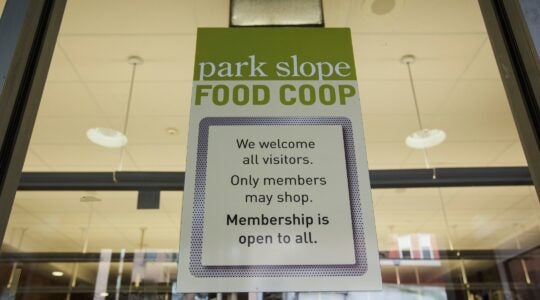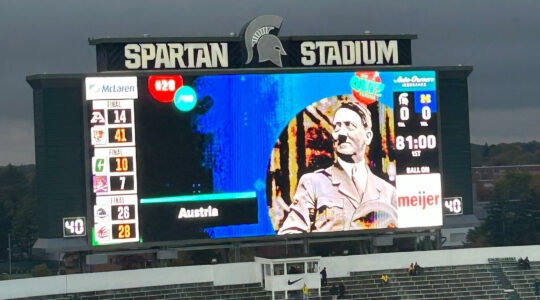LONDON, Dec. 29 (JTA) Nazi-hunters are again urging the Latvian government to extradite a war crimes suspect who was recently discovered to be living in Britain.
The suspect, 86-year-old Konrad Kalejs, is being investigated by British police over his alleged involvement in the killing of 30,000 Latvian Jews during World War II, and British Home Secretary Jack Straw has ordered an inquiry into how Kalejs was able to enter the country.
A U.S. court already found in 1988 that people under Kalejs’s command committed atrocities, including guarding Jews in concentration camps, the burning of villages and the killing of Gypsies, but in 1997 Latvia found that there was no evidence to support the allegations against him.
The Latvian government has faced repeated criticisms for its failure to prosecute Nazi-era war criminals.
Kalejs is alleged to have served as a lieutenant in the Arajs Kommando unit, which collaborated with the Waffen SS.
In addition, Kalejs allegedly worked as a guard at the Salaspils concentration camp, near the Latvian capital of Riga, where other murders were committed.
Kalejs has consistently professed his innocence, claiming that he was a student during the war.
After the war, Kalejs moved to Australia, where he obtained citizenship in 1957. Two years later, he moved to the United States, but was deported in 1994 after his alleged wartime crimes were uncovered.
In August 1997, Canadian authorities deported him to Australia, but he escaped conviction there when judicial authorities found the evidence against him to be insufficient.
Kalejs is thought to have moved to England in July 1998, settling in a secluded home.
Efraim Zuroff, the head of the Jerusalem office of the Simon Wiesenthal Center, told JTA on Tuesday that documentary evidence collected by the U.S. Justice Department’s Office of Special Investigations had since been sent to British authorities.
Latvia’s ambassador to Britain, Normans Penker, told the BBC that any extradition would “depend very much on the file we can gather” on Kalejs.
(JTA staff writer Peter Ephross in New York contributed to this report.)
JTA has documented Jewish history in real-time for over a century. Keep our journalism strong by joining us in supporting independent, award-winning reporting.





